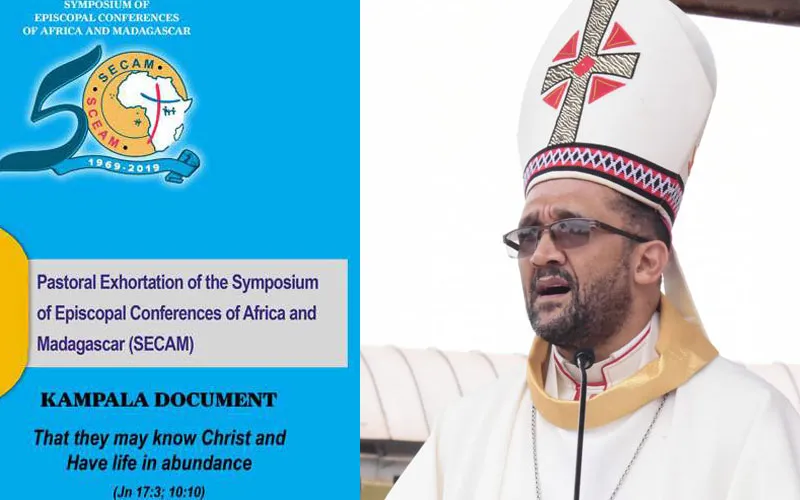The publication is an exhortation to Christian leaders in Africa and the Islands to follow and propose their Christian principles to others in their daily lives as they model their vocation “to that of Julius Nyerere, Servant of God, who was a good Christian politician during his tenure as President of his country Tanzania,” Bishop Sipuka who is also the President of the Southern African Catholic Bishops' Conference (SACBC) said.
KD that is addressed “to all sons and daughters of Africa and the Islands, and people of good will elsewhere” was unveiled in Ghana, Burkina Faso and Mozambique on January 21.
The unveiling in South Africa was postponed to pave way for the funeral arrangements of the late Coadjutor Archbishop of Durban, Abel Gabuza, who succumbed to COVID-19-related complications on January 17.
During the January 21 launch at the headquarters of SECAM in Ghana’s Accra Archdiocese, the leadership of the continental symposium invited Christians in Africa and beyond to seek a deeper understanding of Jesus and to guard against “spiritualities of deliverance and prosperity.”
On her part, Sr. Teresa Okure, one of the drafting members of the document offered “insights into the main theological and pastoral” dimensions of the KD, which she termed a jubilee document that signals “collaboration beyond boundaries.”
A section of SACBC members, representatives of the Ghana-based SECAM Secretariat, and officials of the Inter-Regional Meeting of the Bishops of Southern Africa (IMBISA) were among the participants in the January 28 virtual event.
Reflecting on KD content, the Director of the IMBISA Secretariat, Fr. Dumisani Benedict Vilakati, said, “SECAM and the Church family of God in Africa commits to return to our baptismal roots in Christ and his Gospel, to deepen the knowledge of our professed Baptismal faith, live our baptismal promises in all circumstance of life and to generate the zeal and ambition for evangelization in order to build for all citizens, a new Africa the centred on God.”
Through KD published as a Pastoral Exhortation of SECAM under the theme, “That They May Know Christ and Have Life in Abundance”, the Bishops in Africa call on the faithful across the continent and the Islands to be “personally involved” in the Church and acknowledge that their involvement is important, Fr. Vilakati added.
The Swaziland-born Cleric further said that KD is a call to Christians in Africa to work together “towards appropriating with others the abundance of life that Jesus gave to humanity at great cost to himself.”
“This should lead us to be aware that Africa is not a passive recipient of the Gospel,” Fr. Vilakati further said, adding, “Often the impression is given that Africa is a recipient of the Gospel through the work of European missionaries or that Christianity in Africa is a foreign religion.”








